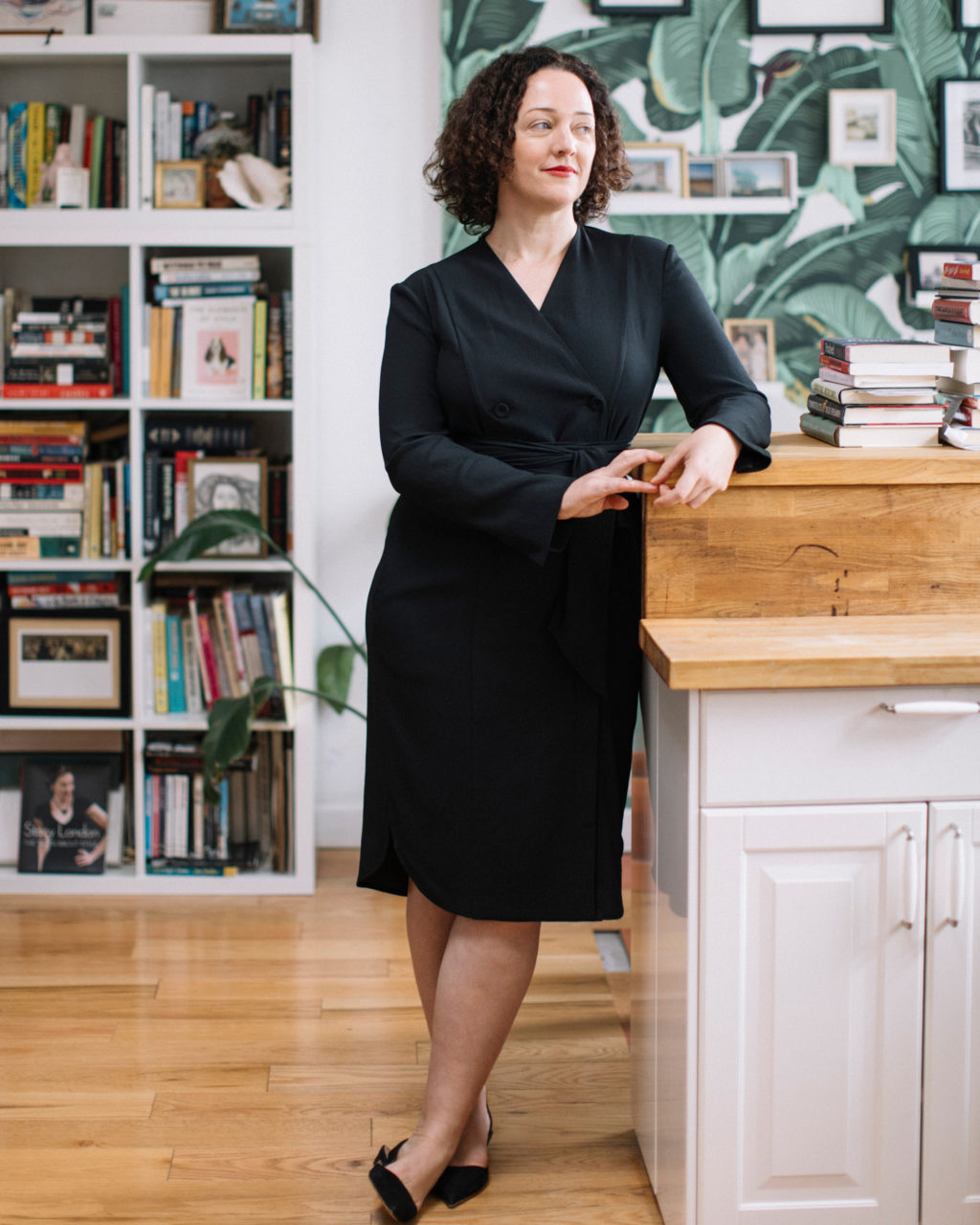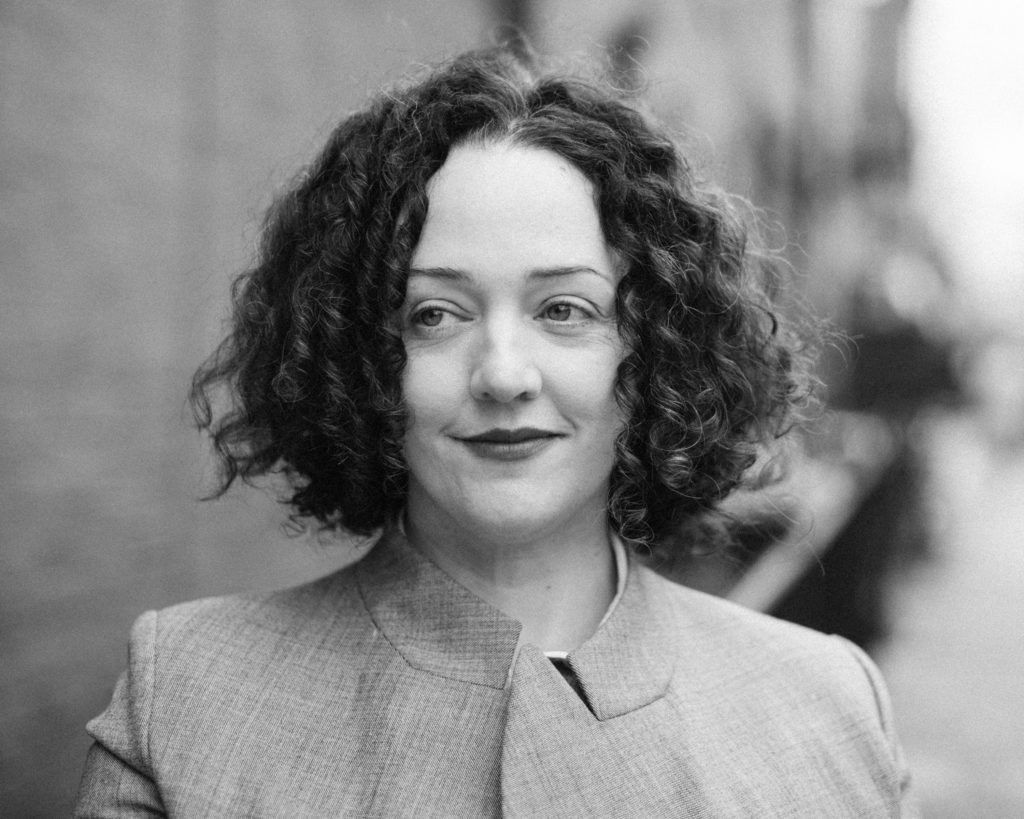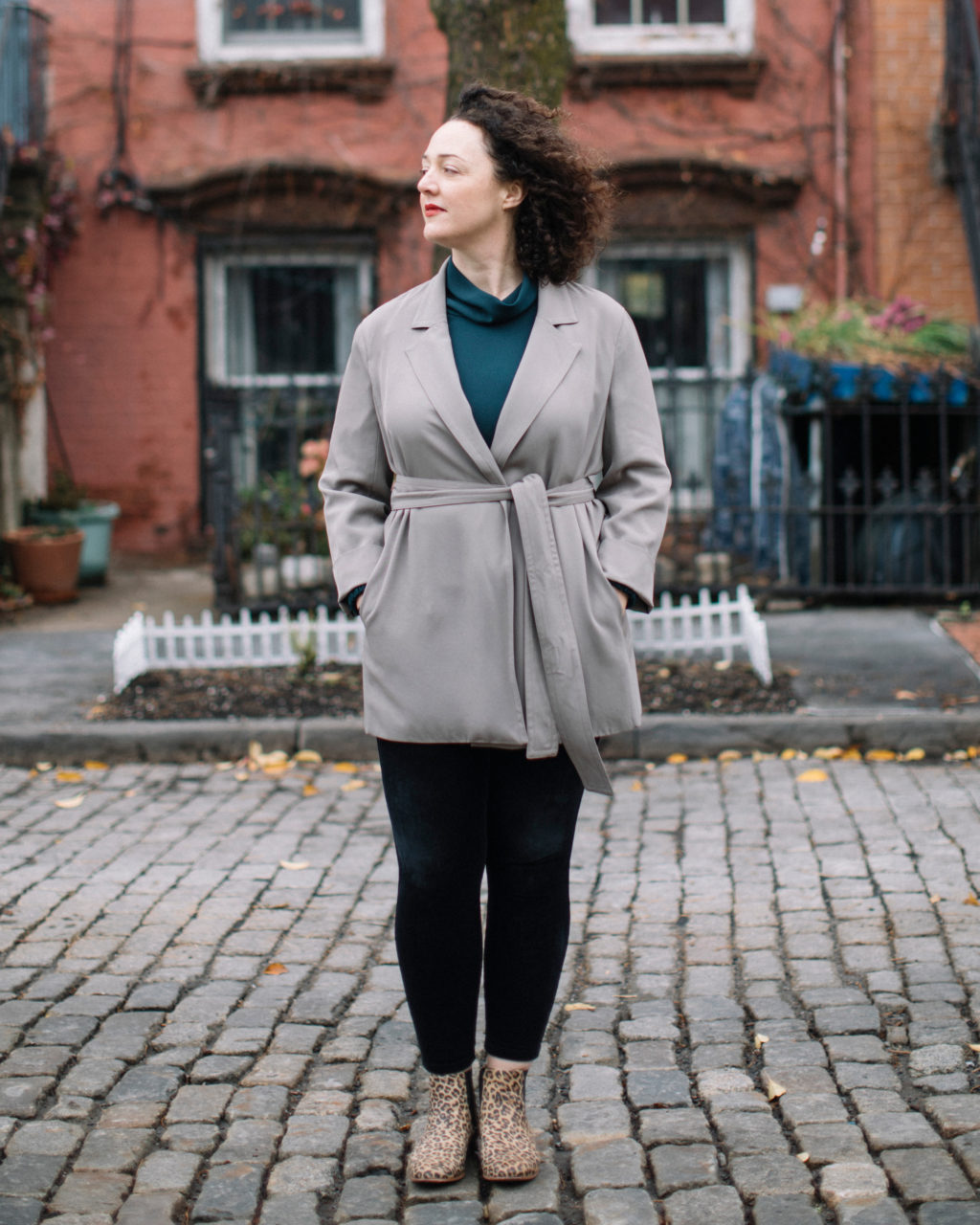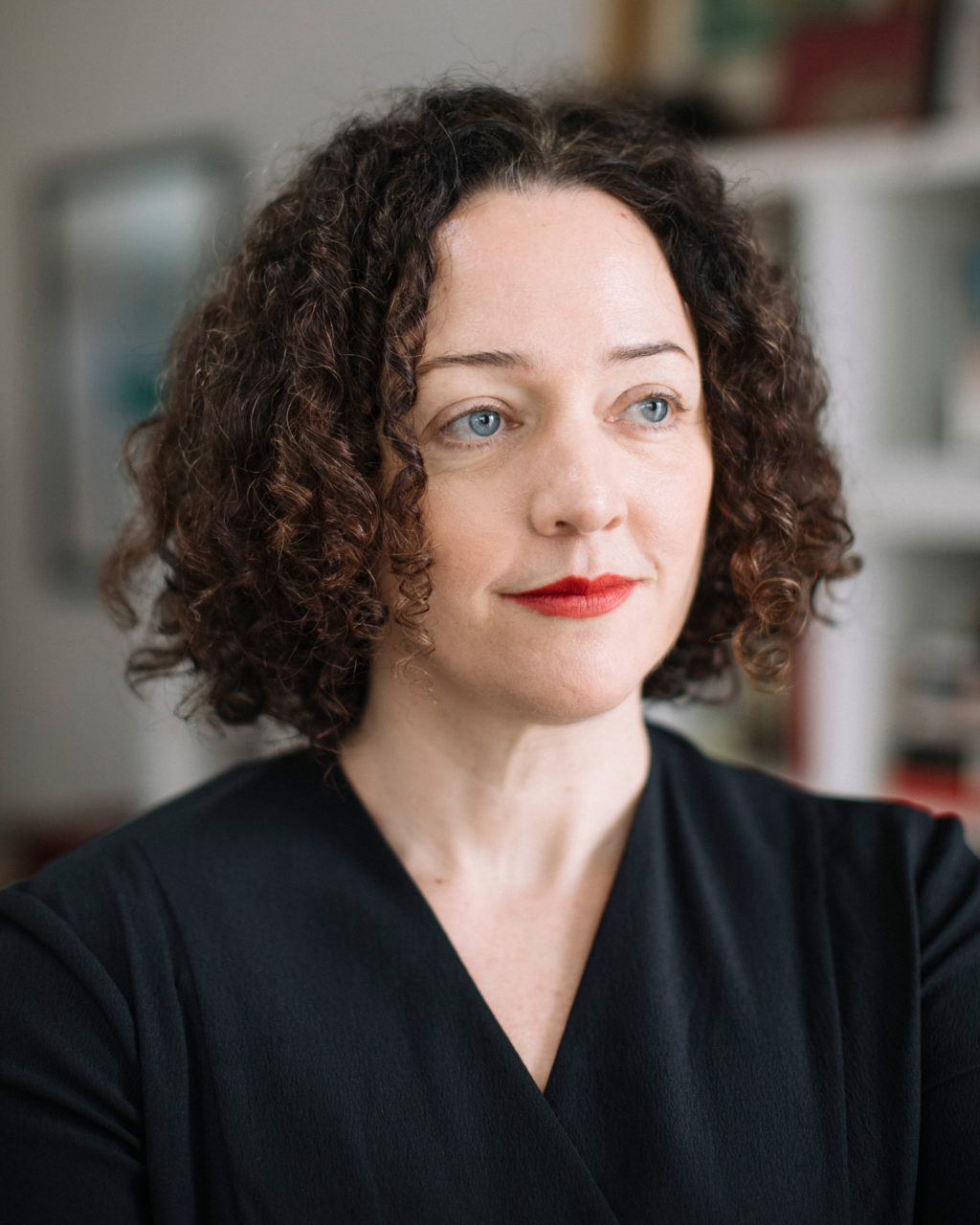Glynnis MacNicol on Creating a New Narrative for Women Over 40—and Why Regrets Are a Waste of Time
December 21, 2018 | Filed in: Woman of the Week
When writer Glynnis MacNicol turned 39, she realized that there was a dearth of stories about women her age who were single, without children, and living a rich, full life. As a co-founder of TheLi.st, a professional network for women, she had a rewarding career and a deep bench of strong relationships. So why did society label her as somehow “missing out”? Here, she talks about what fueled her recent memoir, No One Tells You This—about her life in her early forties—and how she learned to stop caring about what other people think.
I GOT THE IDEA FOR MY BOOK SHORTLY AFTER I TURNED 41. I thought of it as a dispatch. I had landed in this unmapped territory and I wanted to send a report: “This is what it’s like to be a woman in her forties who is single and has no children and is still a fully-formed person.” Reaching my forties seemed so terrifying because there were so few inspiring examples of what it could look like. In fiction, single and childless women are often demonized or left on the sidelines. They’re the spinster aunt in the attic, or the best friend in a supporting role. I wanted to paint a real picture. And I want to see a billion more memoirs by women. The more variety of women’s voices in literature, the better.
I WASN’T INTERESTED IN WRITING a book with a prescriptive tone or a self-help angle. My whole book tour people asked, “What is your advice for me, at this stage of my life?” I was trying to offer stories instead of advice. I usually just said, “What you’re going through is real, and you have a right to be upset.”

Glynnis wears the Gosia dress.
THERE’S A LOT OF SHAME ATTACHED TO WOMEN’S EXPERIENCES, so much that we’re not even aware of it a lot of the time. Like, why do I feel bad that I’m eating alone? Why do I feel bad if I’m getting on this plane by myself? Why do I feel bad if this friendship seems to have stalled? As I get older, I’ve realized that there’s very little in the world meant to make women feel secure.
I HAD A LOT OF FUN IN MY TWENTIES. Well, I did have to support myself, so I was a waitress. But no one would have met me at age 28 and said, “Wow, that woman’s really going places.” At the end of my twenties, I felt great anxiety and shame. I thought, What am I doing with my life? I’m a failure. In hindsight, I’m glad that I lived a full, enjoyable life before I hightailed it onto the career track. So many people under 30 are so anxious about their careers. But I’m grateful that I lived my life separate from ambition for as long as I did, because it gave me a lot of experiences, and that’s particularly useful to me now as a writer.
WHEN I TURNED 30, I THOUGHT, I HAVE TO GET MY SHIT TOGETHER and make up for lost time. So I did a 180 and went full throttle. I got a job in book publishing, and then in 2005 The Huffington Post launched and I got in on the ground floor as a contributing writer. Then I worked as a media reporter, and did cable TV appearances once a week. I was able to catapult myself from waitressing to a well-paid reporting job within a couple of years. I worked insane hours, and was incredibly ambitious. I went nonstop for about five years, but I wasn’t complaining because it was very exciting.

Glynnis wears the Oliver jacket and the Lauren top.
WHEN I BURNT OUT AT AGE 36 OR 37, I burnt out spectacularly. I quit my job, went back to my apartment, and lay on the floor watching Golden Girls for three months straight. I had a little bit of money saved, and I just watched my bank account dwindle. In the movie version of my life, it wouldn’t seem so bad—maybe 20 minutes where my character hasn’t had a shower—but in real life that kind of burnout is alarming and terrifying and your friends are like, “Okay, it’s time to snap out of this.” I kept turning down opportunities for great full-time jobs because I just couldn’t bring myself to get off the floor. And that’s when TheLi.st came to be.
MY BUSINESS PARTNER FOR THELI.ST, Rachel Sklar, started an online group for women in 2010. It was very small at first, but people started to email her saying, “This network has become so important. We’d pay to keep it going.” She wasn’t interested in managing it on her own, and I didn’t want to go back to a full-time job, so I said to Rachel, “I’ll do this with you.” And that’s how TheLi.st started. At the time, people thought we were crazy. But women were telling us that they’d pay, and we weren’t idiots—we said yes.
FOUNDING A COMPANY IS TERRIFYING and exhausting. We tend to fetishize founders as these heroic, exciting figures, but I think that does a disservice to the reality of it. There’s a reason a lot of entrepreneurs hit a point where they think, I miss my direct deposit paycheck. I miss being able to go home and be done at the end of the day. I miss benefits. And that’s okay!

Glynnis wears the Imogen jacket and the Dolores top.
DRAWING A LINE BETWEEN A PROFESSIONAL RELATIONSHIP and a personal one can be hard. Rachel and I are very good friends, but we had also worked together in a number of ways before we became business partners and had a lot of experience navigating that gray area. It’s different for everyone but I often suggest to people one of the ways to avoid necessary complications is to put everything in writing at the onset. The business needs a certain amount of scaffolding, otherwise, you risk putting too much pressure on the friendship.
I HAVE A HIGH TOLERANCE FOR RISK. I’m not sure that’s something you develop or are born with, but one result is that there were some scary times when we were starting TheLi.st that maybe were less scary to me than they should have been. The idea of going back to the reporting grind I had been in, which had led to such a terrible burnout, was in many ways more scary to me than not having enough money for groceries one week. And once we had TheLi.st going, I started writing again, and I was able to write what I wanted to write instead of what I had to write.

Glynnis wears the Gosia dress.
I’M 44, AND ESPECIALLY NOW THAT I’VE WRITTEN A BOOK about my life, I’m less sensitive to people’s opinions about me. Writing a memoir involved excavating a lot more stuff than I had anticipated. At first I thought, Oh, this will be fun and interesting. And then once I started, I wanted to hide under the covers. That process was hard, but once it was done, it made me more immune to people’s responses to me, because I’d come to terms with those parts of myself already.
I HAVE MOMENTS WHEN I FEEL like I’ve “arrived,” or really gotten somewhere, and then they go away. Just the other day, I had this feeling of, Oh, I’m not doing enough, and I had to remind myself, You just published a book. Calm down. But I’m coming to terms with the idea that there may not be a defining “You’ve made it!” moment. It’s important to enjoy and recognize what you’ve accomplished when you reach milestones. But it’s more important that you define your own measure of success.

Glynnis wears the Oliver jacket and the Lauren top.
Photographs by Rich Gilligan. Styling by Nyjerah Cunningham.





